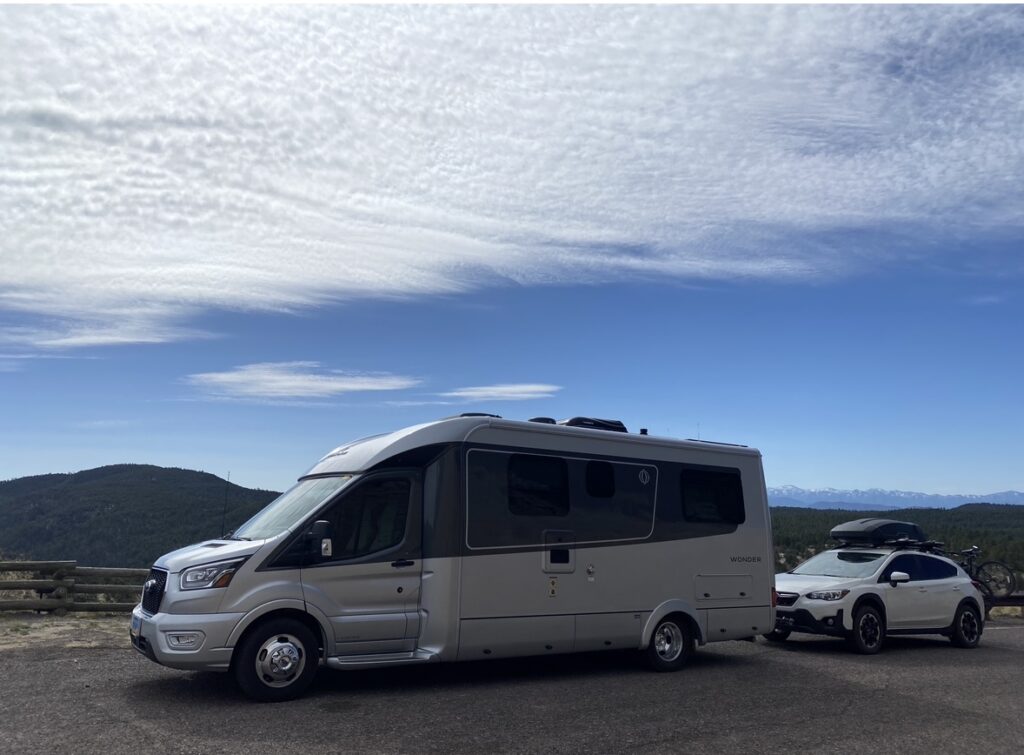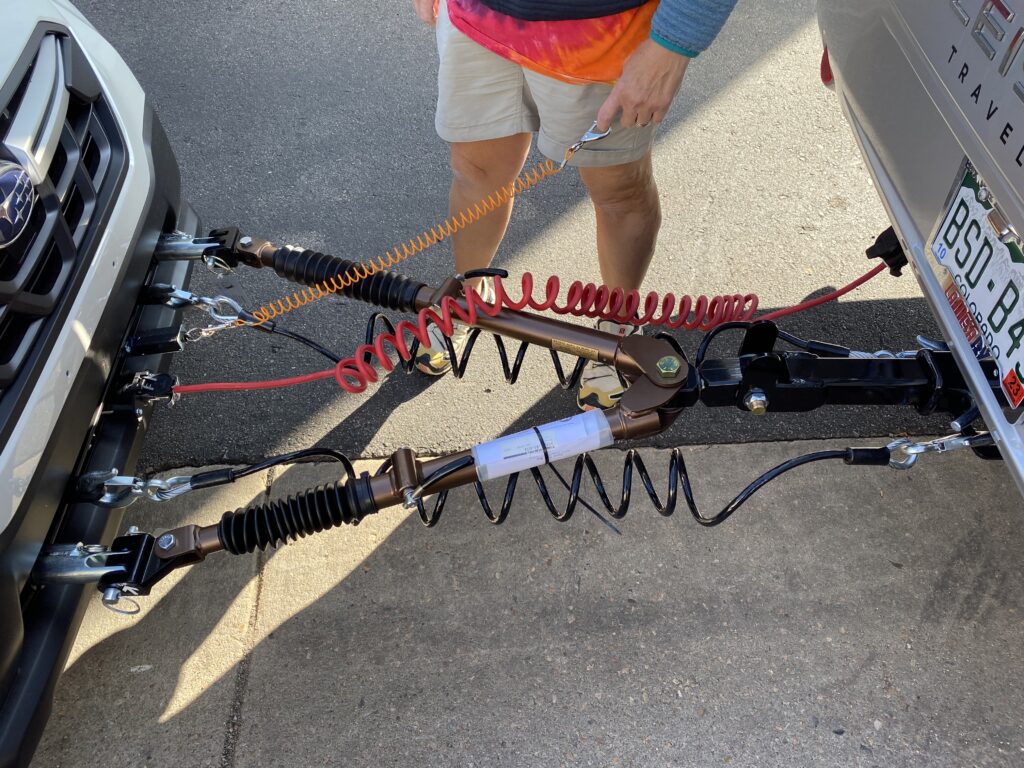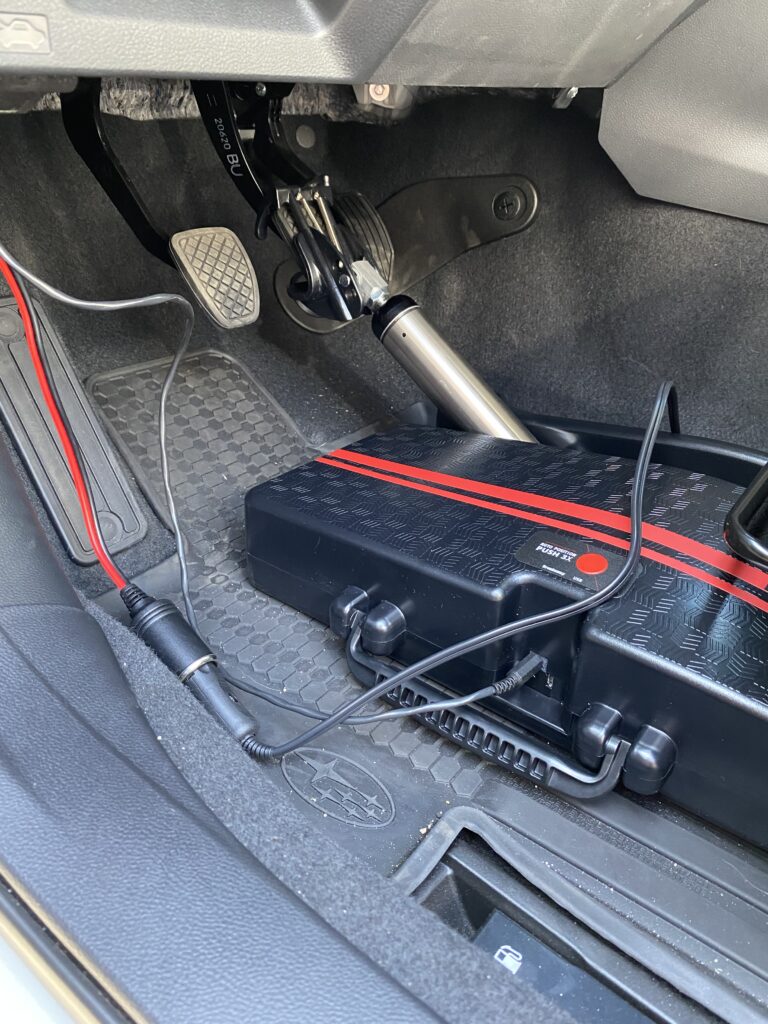
This is a personal decision every RV’er makes whether intentional or not. The choice is a hot topic on many forums and Facebook threads. Both sides are passionate with their choice and insistent on trying to convince the other side why it is the best. I prefer to try to provide information which will help people make their own decisions.
Let’s start with the name Toad. What is a Toad. Toad is what many RV’ers affectionately call their towed vehicles. The RV community embraced the nifty play on words and toad has become cemented in the unique vocabulary of RV’ers.
There are many classifications of RV’s, drivable motorhomes include class A,B, and C. In addition, there are two types of towable RV’s, fifth wheels and bumper tows. There are even truck campers and converted busses, as well as a variety of homemade RV’s. Some states do allow double towing, but not all.
This piece will focus on the three classes of drivable motor homes. Class A motorhomes tend to be larger and more luxurious. B class motorhomes are the smallest with the advantages of a van and the amenities of a fully equipped RV. Class C motorhomes are known for the extension of the RV over the cab of the vehicle. These models are larger than Class B’s and tend to be smaller than Class A’s.
Three Types of Towing
The three most common types of towing are flat-towing, tow-dollies, and trailer towing either opened or closed. All tows include a hitch connection between the vehicles, a standard electrical plug, a standard trailer safety disconnect brake, and safety cables or chains.

First, flat-towing is a towing process in which all four tires of the towed vehicle touch the pavement. Flat-towing includes specialized tow bars, which connect the tow hitch with two fixed location points on the towed vehicle. A trickle charge source of power is often required for the towed vehicle. Vehicles that are able to be flat-towed are manual transmissions or four-wheel drive vehicles with a manual transfer case. The transfer case is shifted into neutral, when towing.
Tow dollies are hooked-up to the RV like a trailer and behave like a trailer. The front of the vehicle is driven on the dolly and the back tires remain on the pavement. A car tow dolly is designed for front-wheel drive cars that weigh less than 5000 lbs. Not all vehicles can be towed with a dolly and additional steps may need to be taken. It’s recommended to read your owners manual or consult the manufacturer before using a tow dolly.
Trailer Towing is another option. Trailers come in various open and closed models. Trailers offer the ease of navigating and backing, in addition, any vehicle can be trailer towed with no modifications. Front-wheel, rear-wheel, AWD, four-wheeled drive, automatic or standard transmission are all easily trailer towed. Towing safety weight limits may exclude many RV’s from towing a vehicle in a trailer.
Weight Ratings
Weight ratings are important. Manufacturers calculate safe operating weights for vehicles. Weight ratings are located on the inside of the driver side door, or in the owners manual. Exceeding weight ratings can damage a vehicles engine or transmission. In addition, brakes and tires wear more quickly. In the event of an accident, exceeding weight ratings can result in voiding insurance coverage, and personal liability. These definitions will help you navigate the terminology.
Gross Vehicle Weight Rating (GVWR) is the maximum permissible weight, of the fully loaded RV at any time. It includes the full weight of the vehicle, payload, passengers, cargo and trailer tongue weight, if hauling a trailer.
Tongue weight is the amount of weight a trailer puts on the tow vehicles trailer ball. It is typically 10-15 percent of the loaded trailer weight.
Curb weight is the weight of a vehicle with all necessary fluids, such as oil, transmission fluid and a full tank of gas. It does not include passengers or cargo. The combined weight of passengers and cargo and tare weight cannot exceed GVWR.
Gross Vehicle Weight (GVW) is the total weight of a vehicle which includes payload, passengers and all liquids at a point in time.
Gross Combined Weight Rating (GCWR) is the maximum permissible weight rating of a fully loaded towing vehicle and a fully loaded towed vehicle.
Towing capacity is the maximum allowable weight a vehicle can safely tow, which is determined by the manufacturer.
Many Rv’ers follow the 80/20 rule for towing to ensure they do not overload their tow vehicle. It simply recommends not towing a trailer with a GVWR that is more than 80% of your vehicle’s maximum towing capacity.
Towing a Toad
Towing a toad with a Class A motor home or a Class C is easy to understand. They are large RV’s and have high towing capacities. Going for groceries is easier in a Jeep or small car than a forty foot RV. A tow vehicle gets better fuel milage than an RV.
Class B RV’s because they are smaller are less likely to have a towed vehicle. Class B’s are nimble and efficient. They typically fit into normal parking spaces. Because their fuel milage is typically better than a Class A or C, there is not as much fuel savings.
It is a common site to see RV’s towing a vehicle when driving down the road. You may have even seen enough of them to determine that Jeep’s are common choice. A few other tow vehicles often chosen by RVers include Ford Mavericks, Subaru Crosstreks, Mini Coopers, and Honda CRVs. Some of your larger class A’s will even tow a full sized pick up truck.
Our RV, a Leisure Travel Van https://leisurevans.com is classified as B+, which means we are in that middle ground between people who tow and people who do not. Below is our list of Pros and Cons for choosing to tow or not. Pros and Cons are complicated, a pro of towing to one person is a con of towing to another person. Because of this it makes the decision very personal.
Pros
Let’s try to talk about some Pros.
- Extra Vehicle for Safety.
- Two vehicles if there is a mechanical breakdown
- Two vehicles if there is a severe weather situation, or medical emergency.
- Drive to more places with a tow vehicle.
- Back roads and access to hiking trails
- Scenic by-ways with length restrictions.
- Do not need to brake camp.
- Save time when running errands.
- Ease of spontaneous exploring.
- Extra storage.
- Towing a vehicle allows extra weight capacity.
- Storage of large items such as bicycles or kayaks.
- Less space to park a tow vehicle.
- Class A/C will not typically fit in a normal parking space.
- Pulling off the side of a road is not always possible with an RV.
- Less wear and tear on the RV.
- 15000 miles on our tow vehicle is 15000 less miles on the RV.
- Better gas mileage in a tow vehicle.
- 12.8 mpg in my RV
- 27 mpg in my tow vehicle
Cons
Now let’s talk about some Cons.
- Extra vehicle will require additional cost.
- Insurance, Maintenance, and Registration.
- Harder to drive an RV pulling a tow.
- More stopping distance required.
- More difficult to drive a longer vehicle on highways.
- More difficult to pull into gas stations and businesses.
- Not everyone is willing to drive a vehicle with a tow.
- Unable to back-up a flat-towed vehicle.
- There is no backing-up, if it’s a dead-end road you will have to unhook.
- Length of vehicle may not allow travel to all destinations.
- Towing length may restrict travel on some roads or in National Parks.
- Less gas mileage when towing.
- Towing is more weight and will lower RV gas mileage.
- More wear and tear on the RV.
- Towing is more work for the RV.
- Additional work to hook-up and unhook tow.
- Towing requires an extra step when moving.
- Parking requires extra room with a tow.
- Parking a 25′ RV with a towed vehicle requires lots of space, which is often not available.
- Many tow vehicles are manual transmissions.
- Manual transmissions require an additional skill to drive.
Reading these pros and cons demonstrates the challenge in discussing Toad vehicles. The benefits to you could be detriments to others.
Towing Safety
Towing safety is important. When towing, it is your responsibility to be safe. Before starting any trip, inspect tires and mechanical connections, including safety cables or chains. In addition, verify all lights are operating properly. Connect additional vehicle braking systems and break-away trailer plugs.
Most states require auxiliary braking systems when flat-towing. I recommend looking up the laws where you will be traveling. Pictured below is our additional brake unit. It has a mechanical arm which grasps the brake. You connect the plug into the vehicle’s accessory plug. Once plugged in the unit talks and tells you what to do. Three pushes of the red button and the unit tells you it is set-up.

If you tow a trailer, how you load the trailer is important. Balancing the load from side to side and front to back increases safety. When trailer towing sixty percent of weight should be in front of the axel and forty percent behind. If the weight is too far back it could cause trailer sway which could lead to an accident. Understand weight ratings and do not exceed them. Secure all cargo with quality straps or chains.
A full-time rear view camera is not a standard item on all RV’s. We had the Furrion camera https://furrion.com/products/vision-s-7-observation-system installed and it is a beneficial addition to safely towing. The full-time rear view camera allows constant eyes on the towed vehicle. Highway merging and changing lanes is easier as there is no guessing where the end of the tow vehicle is.
Our Choice to Tow
Voyager our 2022 Wonder RL Leisure Travel Van https://hikingmemere.com/our-gear-list-leisure-travel-van/ is our home and Alice our manual speed Subaru Crosstrek https://hikingmemere.com/our-gear-list-2023-subaru-crosstrek/ is our towed vehicle. Voyager is a mighty 350 Ford Transit which easily transports us, our gear and Alice to any destination we want to visit. It’s effortless to set-up camp and effortless to hook up our tow vehicle.
We chose to tow primarily because we live full-time in Voyager and we need the additional space. We also have pets and having a tow vehicle allows us to leave the pets in a climate controlled environment while we explore. It is simply a personal choice and it is the right thing for us at this moment in time. Live Simple Live Happy